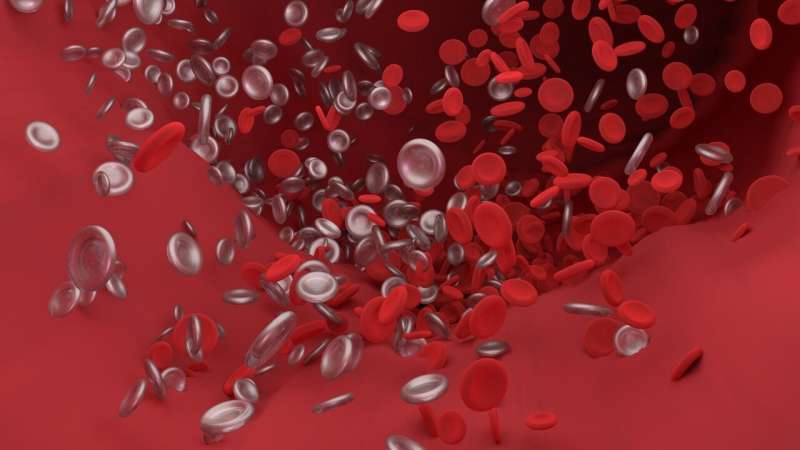Credit: Pixabay/CC0 Public Domain
Research led by Queen Mary University of London associates genetically determined COVID-19 susceptibility with increased blood clot events in leg and lungs, thrombophlebitis and circulatory diseases.
The study used a Phenome-wide (PheWAS) analysis in up to 400,000 European ancestry individuals, derived from the UK Biobank, researchers aimed to identify traits and diseases associated with COVID-19 susceptibility and severity. PheWAS analysis allowed the team to construct the predictive COVID-19 genetic score, using the sum of COVID-19 risk alleles for each individual in the UK Biobank. This score was examined against all available traits and diseases in UK Biobank, adjusted for confounders, in a hypothesis-free manner.
The study found that genetically predicted COVID-19 is significantly associated with an 11% increased risk of phlebitis and thrombophlebitis, a 10% increased risk of blood clots in the leg and a 12 percent increased risk of blood clots in the lung.
Dr. Eirini Marouli, Study lead and Lecturer in Computational Biology at Queen Mary University of London said: "This PheWAS was conducted to determine if genetically predicted COVID-19 susceptibility and severity is associated with other diseases and traits, examining all of them in a hypothesis-free way. For COVID-19 susceptibility, we identified an increased risk of phlebitis and thrombophlebitis. In addition to that, we found that general COVID-19 susceptibility was associated with an increased risk of blood clots in leg and lung; factors involved in COVID-19 mortality."
"The results from our study add valuable information for the identification and stratification of individuals at increased COVID-19 risk and other complications after infection. Our study identifies significant associations of genetically predicted COVID-19 susceptibility with increased blood clot events in the leg and lungs, thrombophlebitis and circulatory diseases. Our findings could have further significance for individual with long-COVID complications."
Provided by Queen Mary, University of London
























